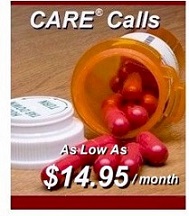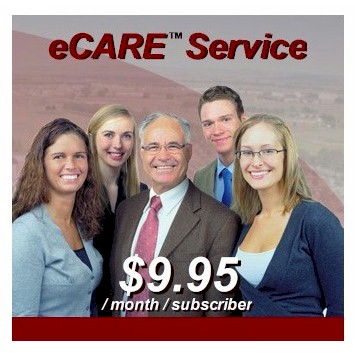|
|

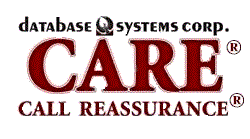
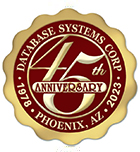
Related Articles
Medication Reminder Services
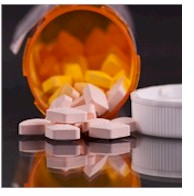 Database Systems Corp. (DSC) has been in the telecommunications business since 1978 and is a leading provider of computer telephony software and phone technology including telephone reassurance phone systems that contact homebound residents to ensure their well-being.
Database Systems Corp. (DSC) has been in the telecommunications business since 1978 and is a leading provider of computer telephony software and phone technology including telephone reassurance phone systems that contact homebound residents to ensure their well-being.
Employing our advanced calling technology, DSC can deliver phone messages such as medication reminders for seniors and homebound patients in just minutes. A recorded message can be delivered to either answering machines or to individuals reminding subscribers to take their prescription medication.
Medication reminders can be customized for each senior including special instructions. Custom information for each patient (such as name, medication type, prescription dosage, number of times per day, etc.) can be included in these medication reminder messages.
The following article is useful when considering the importance of taking medications as prescribed.
Contact DSC to learn more about our medication reminder services and systems.
Follow Directions: Take ALL Your Medication
Source: StayWell Custom Communications (SCC)
The doctor hands you a prescription for antibiotics. The pharmacist hands you the bottle of pills that you're supposed to take for the next 10 days. But after a few days of taking the medicine, you forget a dose. And then another. And another. Soon, the bottle of pills is pushed to the back of the medicine cabinet, unfinished.
You have just become a medical statistic, part of a growing problem discussed by drug companies, doctors, pharmacists, and other health care experts.
About half of all prescriptions are not used correctly, experts say. And nearly a quarter of patients never bother to get their prescriptions filled. Among older adults, more than a third of all hospital visits can be blamed on medication noncompliance.
Noncompliance takes several forms. In the above example, halting a regimen of antibiotics early is one form of noncompliance. The other form is, "Gee, if one pill worked well, then two would be even better."
More expensive drugs
One fallout from noncompliance is the use of more expensive drugs, which increases the cost of health care. If a patient is given an inexpensive "first-line" medication to treat an infection, but doesn't take enough of the drug, the infection isn't cured. And the bacteria causing the infection may now be resistant to the first drug.
The result is that doctors now have to turn to a second-line drug more often and more quickly than they used to. The first drug might have cost only $6; the second drug can cost up to $40. That's a significant increase that might not have been necessary if the patient had followed the directions the first time around.
Another problem associated with taking too much or too little of a drug, says Richard Demers, a Philadelphia pharmacy services director, is that the wrong dose can cause new problems.
Cardiac patients, for instance, often take a blood thinner called warfarin, to prevent blood clots from forming. Because of their condition, these patients must take the drug for the rest of their lives. If taken correctly, the drug works very well, Demers says. But if the patient takes too much of the drug or takes it too frequently, then the blood becomes too thin, causing extensive bleeding if the patient cuts himself.
A patient who doesn't take a medicine the way it was prescribed can also foil a doctor's attempt to learn whether a drug is doing its job, Demers says. An arthritis patient who doesn't follow the prescribed drug regimen, for example, will not make any improvement in his condition. The doctor, not knowing that the patient failed to take the medicine, will think the drug didn't work and switch the patient to a different drug. If that occurs several times, Demers says, the doctor can run out of options.
Taking your medicine
For many long-term therapies, when the drug is working, the patient feels fine, Demers says. "You want to imagine that you don't need the medicine," he says. "I can't tell you the number of family members, aunts, and uncles taking blood pressure medicine, who as soon as they're stabilized want to taper down the dose. They don't want to be dependent on the drug."
The truth is, many times the medicine is treating a condition or symptom, not offering a cure, he says. And whether they like it or not, the medicine is necessary.
Another reason for noncompliance is the complexity of modern prescriptions. When your prescription bottle says to take one pill every six hours, does that mean six hours around the clock, or six hours only when you're awake? (That's four times a day versus three times a day, a significant difference in dose.) If the prescription says to take one pill in the morning, what happens if you work the night shift? Do the directions mean to take it when you wake up—in the afternoon, in this case—or before noon no matter when you normally sleep?
Another factor is how you receive those dosage directions. When you are sick enough to head to the doctor's office, you aren't in the best frame of mind to listen to what the pharmacist is telling you. All you want to do is go home to bed.
Cost of medication is yet another factor in noncompliance. Some patients will try stretching their prescription by taking a pill every other day rather than every day.
Don't become a statistic
What can you do to make sure you don't become a medical statistic on noncompliance?
Ask a lot of questions, experts say. Ask about side effects—what should you expect? If the drug is too expensive for you, ask if a cheaper alternative is available.
Doctors, too, can take steps to help compliance, Demers says. They can make sure patients understand what their illness or condition is, and how the medicine is supposed to help them. Is the drug supposed to cure the illness, or just relieve symptoms? Doctors should present the most critical instructions first, when a patient is more apt to make note of them.
Doctors should also explain to patients what may happen if they don't take the medicine appropriately. Will the disease get worse? Will symptoms get worse?
"Consumers need to understand that any time you are given a drug, you should take it seriously," Demers says. "You should really look at [prescription drugs] as a high-tech piece of equipment...You need to demand support from your physician and pharmacist."
Tips for taking your medicine
You can take several steps to ensure that any medicines you take are as effective as possible:
- Bring all the medications you take to each appointment with your health care provider and make sure your pharmacist knows all the medications you are taking..
- If you are having trouble figuring out when to take a particular drug, discuss it with health care provider or your pharmacist.
- Don't forget to tell your health care provider and your pharmacist about any allergies you have, so they can assess whether those allergies will interact with drugs you are taking.
- If you can, have all your prescriptions filled by the same pharmacy so that the pharmacist can prevent any problems with drug interactions. Problems can occur if the pharmacist isn't aware of other medications you are taking when he or she fills a new prescription.
- If you take a number of medications, carry a list with you of all the drugs and how much you take of each one.
- When you get a new prescription filled, make sure you understand how the drug should be taken and what is supposed to happen.
- If you develop any symptoms after starting a new drug, call your doctor or pharmacist to discuss it.
- Don't take other people's medicines.
Who's compliant?
An article in the journal Hospital Formulary looked at who is more compliant about taking medicine as prescribed:
- Age. Although you might think that elderly adults might have more trouble with taking medications correctly, age doesn't really make a difference. Old and young alike are noncompliant.
- Therapy. The more complicated the therapy, the less likely the patient is to be compliant. A dose taken once a day is more likely to be remembered than a dose taken two or three times a day.
- Disease. Patients taking medication for diseases and conditions such as high blood pressure, diabetes, and asthma are more likely to be compliant than patients taking antibiotics. Those with high blood pressure and diabetes also are more likely to follow their medical regimen than those taking pain relievers.
- Education. You might think that the more education you have, the more compliant you are. Not true. Patients with more education tend to be as compliant as or less compliant than those with less education.
Additional Medication Reminder Articles
The following are other articles relating to medication reminders and prescription refill services:
Individual Medication Reminder Account Signup
DSC provides an easy and secure sign-up procedure (For a quick overview, please visit the registration information web page).
- Online Enrollment - Sign-up online using our secure website.
- Subscriber Profile - Specify the senior citizen's profile (dates and times to make calls).
- Name Contacts - Identify who we need to contact if we can't reach the senior.
- Secure Payment - Choose one of several enrollment and payment options and pay online using Visa or MasterCard.
DSC provides online and phone management of your account. This lets you view a history of the calls. You can also manage the dates and times for these calls including vacation days.
Plus our service is performed automatically.
Create An eCARE Account For Medication Reminders
You can create and manage a community organization eCARE account for free using our online registration process. With this account, you can enroll seniors and other community members using various different profiles including medication reminders for under $10/month per group member:
Click on the Create eCARE Account link below.
Enter your organization's name, a valid email address along with your own password, and we will establish your eCARE account.
eCARE can now be used as your primary calling program for seniors in your community or can be a backup to any other system that is currently making these calls.
eCARE is a pay-as-you-go service and you only pay for the calls that we make.
Contact Us Today
Contact DSC to learn more about our call reminder technology products, software and services.
|
|




 Database Systems Corp. (DSC) has been in the telecommunications business since 1978 and is a leading provider of computer telephony software and phone technology including telephone reassurance phone systems that contact homebound residents to ensure their well-being.
Database Systems Corp. (DSC) has been in the telecommunications business since 1978 and is a leading provider of computer telephony software and phone technology including telephone reassurance phone systems that contact homebound residents to ensure their well-being.
